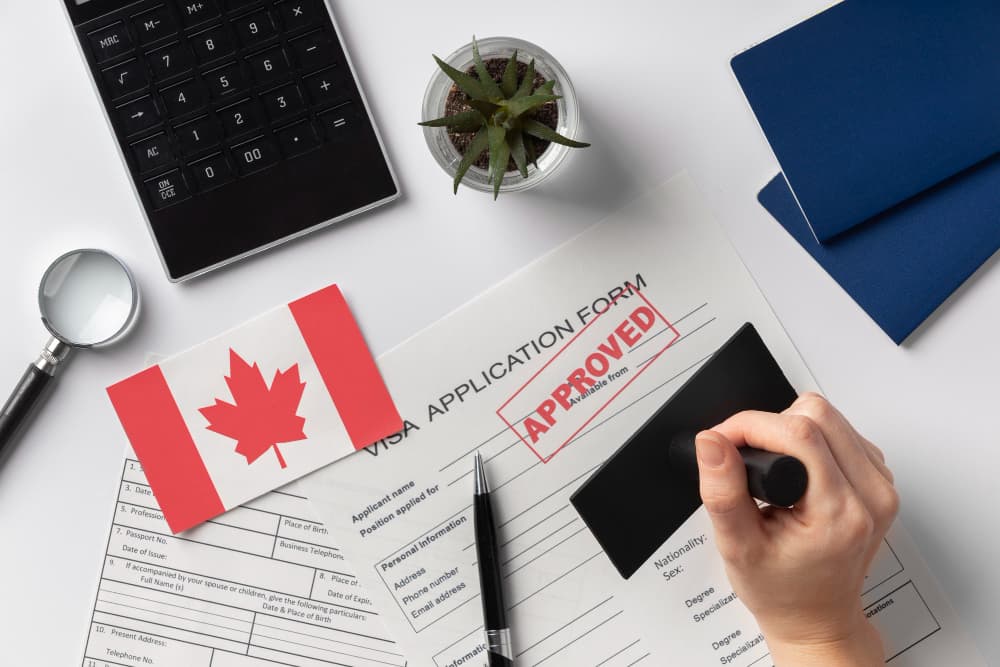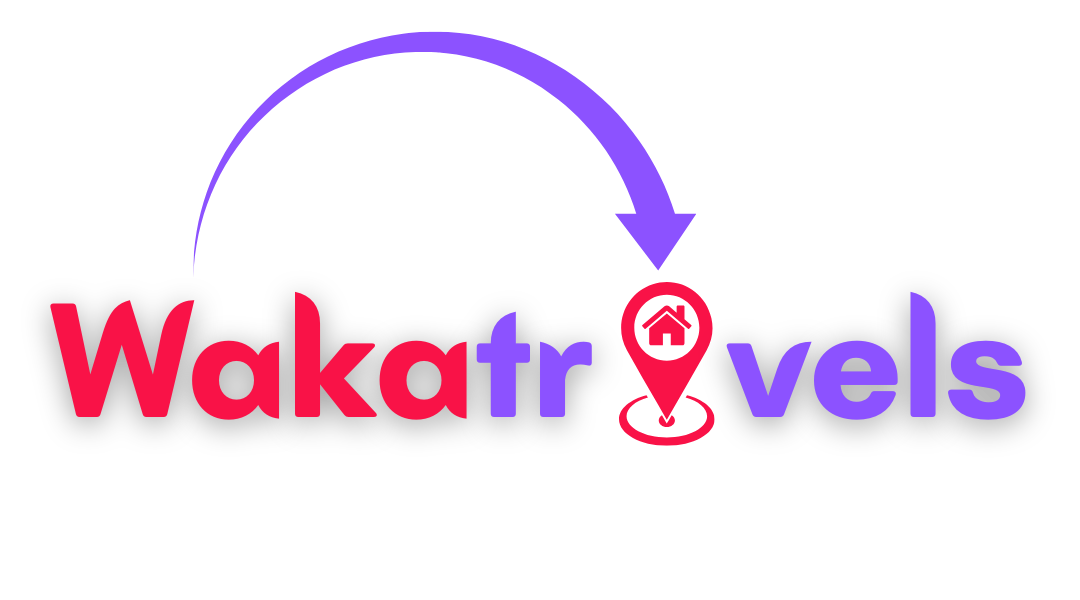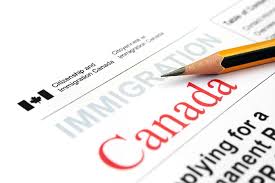
Canada Visa Application: Ultimate Guide for Visitors in 2025
Are you preparing to travel to Canada? I have been in that situation before, eager to discover the beautiful landscapes of the country but then finding myself in a situation where I am overwhelmed by the visa application process. Don’t worry! I have been in a position to assist many travelers with their visa applications, and I am here to provide you with all the information you need to know about Canada visa application documents.
Canada is one of the most beautiful countries in the world with millions of tourists visiting it every year to enjoy its beautiful landscapes, vibrant cities and friendly people. However, before you can take that perfect picture in front of the Niagara Falls or stroll through the cobblestone streets of Quebec City, you will have to ensure that you have your visa documents in order.
This article will explain in detail what documents are required, how to apply, and all the questions that may be on your mind. This article will provide you with easy-to-understand information and real-life examples on how to apply for a visitor visa, work permit or study permit.
Let’s make your Canadian dream adventure a reality!
What Documents Do You Need for a Canada Visa Application?
The exact documents required for your Canada visa application will depend on the type of visa you’re applying for. However, there are some core documents nearly everyone needs:
Essential Documents for All Applicants
- Valid passport (must be valid for at least 6 months beyond your planned stay)
- Completed application forms specific to your visa type
- Proof of financial support to cover your stay
- Recent passport-sized photographs (specific dimensions required)
- Travel itinerary including flight reservations and accommodation details
- Letter of invitation (if you’re visiting someone in Canada)
- Proof of ties to your home country (property ownership, employment, family ties)
Additional Documents Based on Visa Type
Depending on which type of visa you’re applying for, you’ll need to supplement the basics with specific documents:
Visitor Visa (Temporary Resident Visa)
- Purpose of travel statement
- Travel history documentation
- Proof of accommodation in Canada
- Return ticket or travel funds
Work Permit
- Job offer letter from a Canadian employer
- Labor Market Impact Assessment (LMIA), if required
- Proof of educational qualifications
- Professional certifications
Study Permit
- Letter of acceptance from a Canadian educational institution
- Proof of tuition payment
- Study plan
- Transcripts from previous education
Pro tip: I always recommend creating a personal checklist based on your specific situation. The Canadian government updates requirements frequently, so double-check the Immigration, Refugees and Citizenship Canada (IRCC) website before submitting.
Online Application Process: Step-by-Step Guide
Gone are the days of paper applications! Most Canada visa applications now start online through the IRCC portal. Here’s how to navigate the process:
1. Create an Account
First, you’ll need to create an account on the IRCC website. You’ll use this to:
- Fill out application forms
- Pay fees
- Upload documents
- Check your application status
2. Complete the Application Form
Once you’ve created your account, you’ll need to:
- Select the appropriate visa type
- Fill out personal information
- Answer questions truthfully and accurately
- Review everything carefully before proceeding
3. Upload Required Documents
Next, you’ll upload all your supporting documents. Make sure they’re:
- Clear scans of original documents
- In the accepted file formats (.pdf, .jpg, etc.)
- Named appropriately for easy identification
- Complete with no pages missing
4. Pay the Application Fee
Visa application fees vary depending on the type of visa:
- Visitor visa: CAD 100
- Work permit: CAD 155
- Study permit: CAD 150
You can usually pay by credit card directly through the online portal.
5. Attend Biometric Appointment (If Required)
After submitting your application, you may need to provide biometrics (fingerprints and a photograph). You’ll:
- Receive instructions on booking an appointment at your nearest Visa Application Centre (VAC)
- Need to pay an additional biometric fee (approximately CAD 85)
- Bring your appointment confirmation and passport to the appointment
6. Wait for Processing
Now comes the hardest part – waiting! Processing times vary greatly depending on:
- Your country of residence
- The type of visa you’ve applied for
- Current application volumes
- Seasonal factors
You can check current processing times on the IRCC website.
10 Common FAQs About Canada Visa Application Documents
1. What documents are required for a Canada visa application?
The core documents include a valid passport, completed application forms, proof of financial support, passport photos, and travel itinerary. Additional documents are required based on your visa type – whether visitor, work, or study.
2. Do I need a biometric appointment for a Canada visa?
Yes, most applicants between the ages of 14 and 79 must provide fingerprints and a photograph at a designated Visa Application Centre. After submitting your application, you’ll receive instructions on scheduling your biometric appointment.
3. How long does it take to process a Canada visa application?
Processing times vary significantly based on several factors. Currently, visitor visas typically take 2-12 weeks, work permits 4-16 weeks, and study permits 3-8 weeks. Always check the IRCC website for the most up-to-date processing times for your specific country and visa type.
4. Can I apply for a Canada visa online?
Absolutely! Most applications now start online through the IRCC portal. The online system makes it easier to fill out forms, pay fees, upload documents, and track your application status.
5. What is the cost of applying for a Canada visa?
Fees vary by visa type:
- Visitor visa: CAD 100
- Work permit: CAD 155
- Study permit: CAD 150
- Biometrics fee (if applicable): CAD 85
Remember that fees are non-refundable, even if your application is refused.
6. Do I need health insurance for a Canada visa?
While not mandatory for all visa types, having health insurance during your stay in Canada is strongly recommended. Healthcare costs for non-residents can be extremely high, and a medical emergency could seriously impact your travel budget.
7. Can I work in Canada with a visitor visa?
No, you cannot work in Canada with a visitor visa. If you want to work during your stay, you must apply for the appropriate work permit before arriving in Canada. Working without authorization can lead to serious consequences, including deportation and future inadmissibility.
8. How do I prove financial support for a Canada visa?
You can prove financial support through:
- Recent bank statements (last 3-6 months)
- Proof of employment and income
- Sponsorship letter (if someone is covering your expenses)
- Scholarship or bursary letters (for students)
The amount needed varies, but generally, you should show at least CAD 1,500 per month of your intended stay.
9. Can I apply for a Canada visa if I have a criminal record?
It’s possible, but challenging. Minor offenses might not automatically disqualify you, but you may need to provide additional documentation like police certificates or court records. For serious criminal records, you might need to apply for criminal rehabilitation before being considered admissible to Canada.
10. Do I need to take language proficiency tests for a Canada visa?
This depends on your visa type. For visitor visas, language tests are not typically required. However, for work permits, study permits, or immigration programs, you may need to provide proof of English or French proficiency through tests like IELTS or TEF.
Common Mistakes to Avoid in Your Canada Visa Application
I’ve seen many applications delayed or rejected due to simple mistakes. Here are some pitfalls to avoid:
1. Inconsistent Information
Make sure all information matches across your passport, application forms, and supporting documents. Even minor discrepancies can raise red flags.
2. Insufficient Financial Proof
Many applications get rejected because applicants don’t demonstrate they have enough funds to support their stay. Be generous with your financial documentation.
3. Missing Signatures
It sounds basic, but forgetting to sign forms is surprisingly common. Double-check that you’ve signed everything that requires a signature.
4. Low-Quality Document Scans
Blurry or incomplete document scans will delay your application. Make sure all uploads are clear, complete, and legible.
5. Insufficient Ties to Home Country
If you don’t provide strong evidence of your intent to return home after your visit, your application might be refused. Show property ownership, family ties, or ongoing employment in your home country.
![Insert image of properly organized visa application documents here]
Top 20 Canadian Destinations to Plan for in Your Visa Application
When preparing your Canada visa application, having a clear travel itinerary can strengthen your case. Here are 20 stunning destinations you might want to include:
1. Toronto
The multicultural hub of Canada offers iconic attractions like the CN Tower, Toronto Islands, and diverse neighborhoods filled with exceptional dining and shopping options.
2. Vancouver
With its perfect blend of urban amenities and natural beauty, Vancouver boasts Stanley Park, Granville Island, and breathtaking coastal views that will take your breath away.
3. Montreal
Experience the European charm of North America with Montreal’s cobblestone streets, world-class festivals, and unique blend of French and Canadian cultures.
4. Banff National Park
No visit to Canada is complete without experiencing the majestic Canadian Rockies. Banff offers turquoise lakes, snow-capped mountains, and abundant wildlife.
5. Niagara Falls
Witness the raw power of one of the world’s most famous natural wonders. The Hornblower boat tour brings you thrillingly close to the thundering falls.
6. Quebec City
Step back in time in North America’s only walled city north of Mexico. Quebec City’s charm lies in its historic architecture, European atmosphere, and delightful cuisine.
7. Calgary
Home to the world-famous Calgary Stampede, this city offers a perfect gateway to the Rocky Mountains while maintaining its unique western heritage.
8. Ottawa
Canada’s capital city showcases impressive government buildings, the Rideau Canal (a UNESCO World Heritage site), and world-class museums documenting Canadian history and culture.
9. Whistler
Whether you visit during winter for world-class skiing or summer for mountain biking and hiking, Whistler offers year-round outdoor adventures.
10. Prince Edward Island
Literary fans will recognize this as the setting for “Anne of Green Gables,” but everyone can appreciate its red-sand beaches and charming coastal towns.
11. Jasper National Park
Less crowded than Banff but equally stunning, Jasper offers incredible mountain and lake scenery, wildlife viewing, and the breathtaking Icefields Parkway.
12. Lake Louise
This iconic turquoise lake surrounded by soaring mountain peaks and a historic chateau hotel is one of Canada’s most photographed locations.
13. Victoria
The capital of British Columbia charms visitors with its British colonial architecture, stunning Butchart Gardens, and whale watching opportunities.
14. Halifax
This maritime city offers a rich history, vibrant waterfront, and serves as a gateway to explore the scenic landscapes of Nova Scotia.
15. Yellowknife
Head north to witness the magical Northern Lights, experience unique indigenous cultures, and enjoy outdoor adventures in Canada’s northern territories.
16. St. John’s
North America’s oldest city features colorful row houses, lively music scene, and dramatic coastal landscapes that capture the essence of Newfoundland.
17. Mont Tremblant
This Quebec resort town offers world-class skiing in winter and hiking, golfing, and water activities during summer, all in a picturesque European-style village setting.
18. Tofino
Located on Vancouver Island’s west coast, Tofino is famous for surfing, storm watching, hot springs, and incredible wildlife including whales and bears.
19. Winnipeg
Discover the heart of Canada at The Forks historic site, the stunning Canadian Museum for Human Rights, and the vibrant Exchange District.
20. Charlottetown
Visit the birthplace of Canadian Confederation and enjoy Prince Edward Island’s charming coastal scenery, seafood, and historic sites.
Including specific destinations in your travel plans shows immigration officers that you’ve researched your trip and have legitimate tourism interests.
Preparing for Your Biometric Appointment
Most Canada visa applicants need to provide biometrics (fingerprints and a photo). Here’s what to expect:
Before Your Appointment
- You’ll receive a biometric instruction letter after submitting your application
- Book an appointment at your nearest Visa Application Centre (VAC)
- Pay the biometric fee (CAD 85)
What to Bring
- Your passport
- Your biometric instruction letter
- Your appointment confirmation
During the Appointment
- The process typically takes 15-20 minutes
- Your fingerprints will be electronically scanned
- A digital photograph will be taken
- No ink or physical impressions are involved
After Biometrics
- You’ll receive a confirmation receipt
- This receipt may be required when traveling to Canada
- Your biometrics remain valid for 10 years
Language Requirements for Canada Visas
While visitor visas don’t typically require language tests, other visa types often do:
Work Permits
Depending on the job and program, you may need to demonstrate English or French proficiency through:
- IELTS (International English Language Testing System)
- CELPIP (Canadian English Language Proficiency Index Program)
- TEF (Test d’Évaluation de Français)
Study Permits
Most Canadian educational institutions require proof of language proficiency for admission, which will be needed for your study permit application.
Immigration Programs
If you’re considering permanent residency through programs like Express Entry, language proficiency is a key factor in your eligibility.
What to Do If Your Visa Application Is Rejected
Don’t lose hope if your application is refused! You have options:
Understand the Reason
- Carefully read the refusal letter
- Identify the specific reasons for refusal
Address the Issues
- Gather additional documentation to address concerns
- Strengthen areas where your application was weak
Reapply or Appeal
- You can submit a new application with improved documentation
- In some cases, you may be able to appeal the decision
Seek Professional Help
- Consider consulting with an immigration consultant or lawyer
- They can identify issues you might have missed
Conclusion: Making Your Canadian Adventure a Reality
Applying for a Canada visa might seem daunting at first, but with the right preparation and documentation, you’ll be exploring the gorgeous landscapes and vibrant cities of Canada before you know it.
Remember to:
- Start your application process early
- Double-check all requirements on the official IRCC website
- Prepare complete and honest documentation
- Keep copies of everything you submit
I hope this guide has made the application process clearer for you. Canada truly is a remarkable country to visit, with friendly people, stunning natural beauty, and diverse cultural experiences waiting for you.
Ready to start your Canadian adventure? Begin by checking your eligibility and gathering your documents today!



